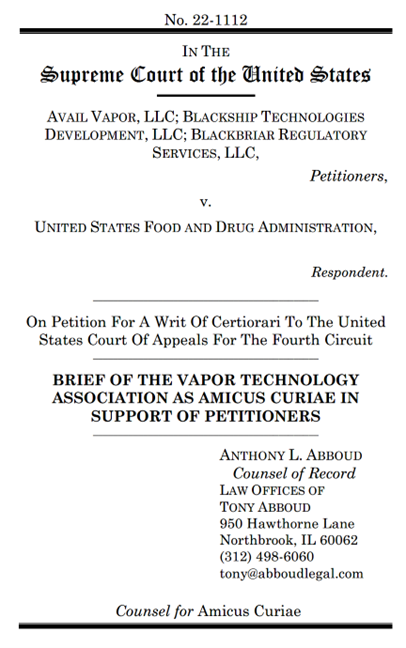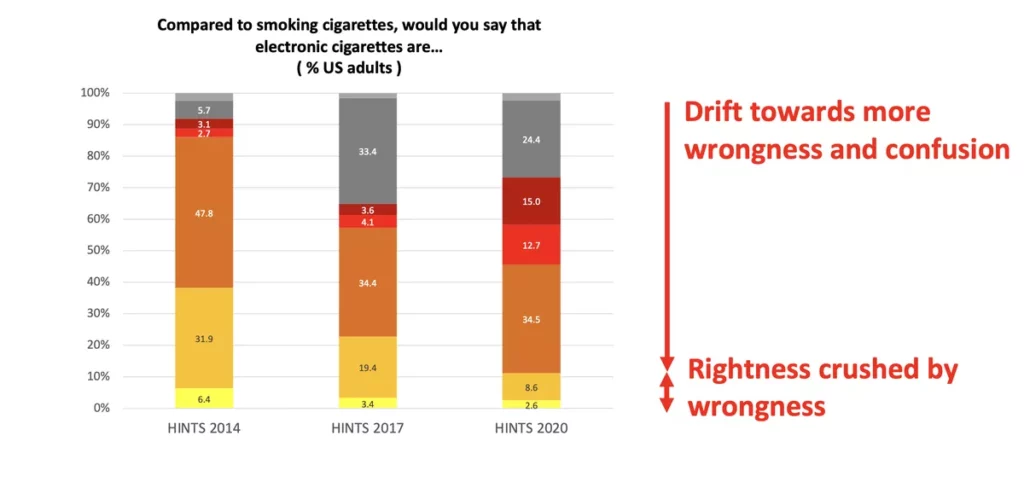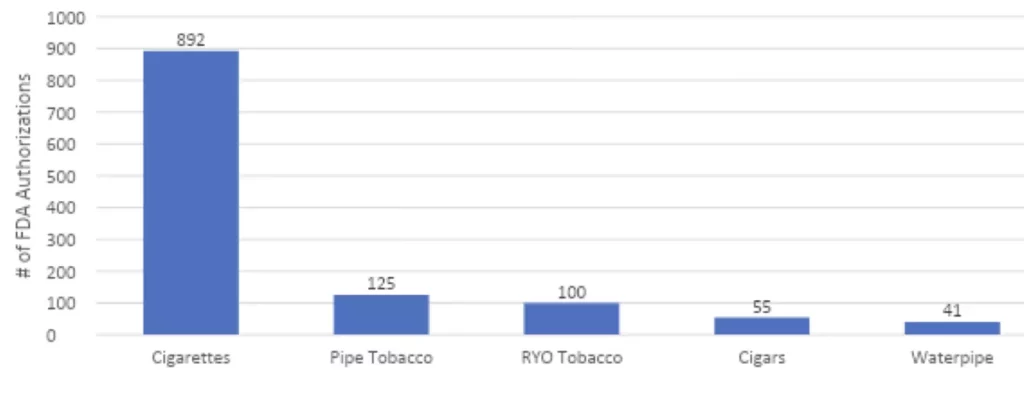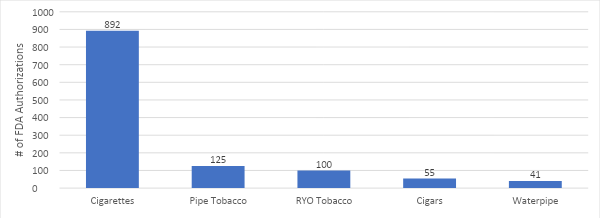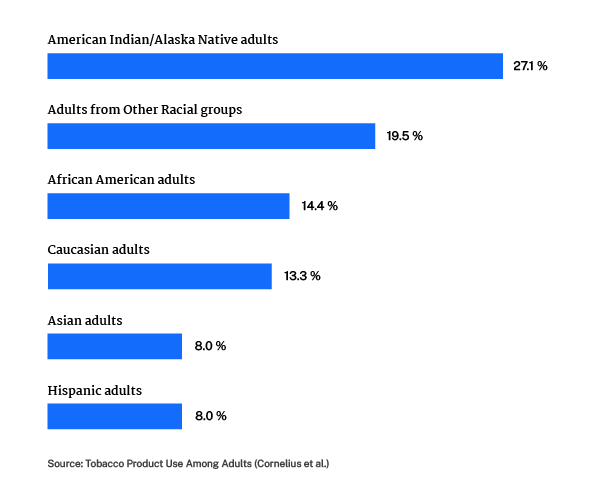Comments of the Vapor Technology Association
Presented by Tony Abboud, Executive Director
Food and Drug Administration – Center for Tobacco Products
5630 Fishers Lane, Rm. 1061
Rockville, MD 20852
Re: Docket No. FDA–2023–N–2873
Good morning. Thank you for the opportunity to provide input on the Strategic Plan.
I will address three c\ore priorities in CTP’s creation and implementation of a Strategic Plan.
First
The Agency needs to immediately loudly and repeatedly announce its commitment to the principles of harm reduction and, in so doing, loudly and repeatedly communicate the public health goal of reducing risk through the use of vaping and modern oral nicotine products. If this is not the centerpiece of CTP’s messaging and Strategic Plan and announced as such, then the cacophony of misinformation regarding less harmful nicotine alternatives, about which Director King has lamented himself, will simply undermine whatever Strategic Plan CTP eventually puts in place.
Second
The Strategic Plan must fix what can only be considered a broken PMTA process. A couple of points here:
The Reagan-Udall Foundation critiqued CTP for having undefined application requirements. They said, “Applicants, … will struggle to address the issues necessary to meet the APPH standard unless FDA clearly articulates its expectations. CTP has a responsibility to clearly identify application requirements, if for no other reason than to reduce the burden on the Agency itself and improve efficiency.”
But there is another more important reason. A scientific regulatory scheme which purports to determine what is appropriate for the protection of public health but which does not specify the science that is necessary for making that assessment is ultimately ineffective and subjective. CTP’s Strategic Plan MUST include the specific and finite list of studies and data which is required to support an APPH determination and which, if provided within certain parameters, will be sufficient for CTP’s evaluation and issuance of a marketing order.
The Reagan-Udall Foundation’s critique was clear. They said: “The plan must …explain how FDA is interpreting the APPH standard.”
The key question they said is, “how to weigh the public health benefits of the percentage of adults who use ENDS that will completely quit smoking combustible tobacco products against the potential public health harms that youth who use ENDS will acquire a lifelong addiction to nicotine or proceed to use combustible tobacco products.” To that end, CTP must clearly end its current subjective application of APPH in which it has proclaimed that ALL flavored ENDS products are attractive to youth regardless of the specific product at issue and regardless of that product’s experience, if any, with youth. This presumption was made without any reference to the product at issue in the application and, thus, is entirely unscientific and evidence of a double standard. Very simply, the presumption imposed in CTP’s July 2021 fatal flaw memo is no longer defensible in light of the Reagan-Udall Foundation’s findings. CTP can and should establish an objective assessment mechanism for evaluating each of the scientific studies presented on each of the prongs of the APPH test that ultimately results in a score for each product’s application based on an objective, not subjective, assessment of the science presented.
Third
Meaningful change will not come unless CTP implements safeguards to ensure that the review process is insulated from external pressures and that CTP scientists are allowed to unapologetically follow the science. The revelations of FDA’s own scientific staff about political interference in a scientific review process must be dramatically addressed. In other words, CTP scientists must be allowed to complete their reviews of applications without interference or changes in review protocols/standards which were not in place prior to applications being filed.
CTP cannot afford a repeat occurrence of an Acting Commissioner, for example, belatedly interjecting herself into the scientific process to alter decisions that otherwise would have been endorsed by the Office of Science. Unless this occurs, CTP will be unable to execute its mission and public confidence in FDA decisions will be further eroded.




